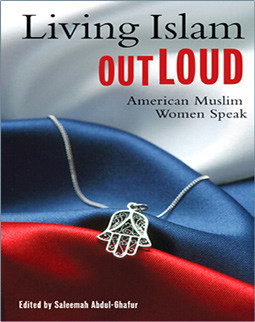The Murabitun have come up on Grenada before, mainly in the entries islam and mexico and laughing lions as well as several of the links in my link section. Here is a more recent piece which mentions the activities of the Murabitun and other Muslims in Latin America.
Islam in Latin AmericaLatin America is home to a sizeable and diverse Muslim population with deep roots throughout the region. Most Muslims are of Arab descent, typically of Lebanese, Syrian, and Palestinian origin, although Christian Arabs from the Levant far outnumber their Muslim kin. There are also sizeable South and Southeast Asian Muslim communities with roots in India, Pakistan, Afghanistan, and Indonesia in Suriname, Guyana, Trinidad and Tobago and elsewhere in the Caribbean Basin. The region is also experiencing a steady stream of migration from the Middle East and South Asia in recent years, especially in vibrant free-trade zones such as Iquique, Chile and Colon, Panama.
As a result of intermarriage and conversion, Islam is becoming one of the fastest growing religions in Latin America. There is evidence to suggest that Muslim missionaries based in Spain and their regional affiliates are making inroads into disenfranchised and underserved indigenous communities that were once the target of evangelical Christian sects for conversion [6]. The competition between Muslim and Christian missionaries for prospective converts has even led to confrontation and violent clashes in the Mexican state of Chiapas.
Spain’s al-Murabitun (The Almoravids, after the African Muslim dynasty that ruled North Africa and Spain in 11th and 12th century) is believed to be the most prolific missionary movement operating in Latin America [7]. The group is an international Sufi order founded in the 1970s by Sheikh Abdel Qader as-Sufi al-Murabit, a controversial Scottish Muslim convert born Ian Dallas. Although no hard evidence has surfaced tying the group to international terrorism, let alone al-Qaeda, Dallas has been accused of harboring extremist leanings. Aurelino Perez heads the Murabitun’s campaign in Chiapas, where he competes with Omar Weston, a British-born Muslim convert who resides in Mexico City and heads the Centro Cultural Islamico de Mexico (CCIM), for adherents in Chiapas and the rest of Mexico. Known locally as Muhammed Nafia, Perez is a Spanish convert to Islam who hails from the southern Spanish city of Granada in Andalusia.
The Murabitun’s ambitious efforts to gain adherents in Mexico include an unsuccessful attempt to forge an alliance with Subcommandante Marcos and his Zapatista Army of National Liberation (EZLN), following the group’s armed rebellion in Chiapas in 1994 [8]. The Murabitun are comprised predominantly of Spanish and European converts to Islam. There are also reports that Muslim missionaries are finding adherents among indigenous peoples in Bolivia and elsewhere in Latin America [9].
In an effort to win over converts in Latin America, the Murabtiun emphasize the cultural links between the Arab world and Latin America through Spain’s Moorish heritage. In doing so, the Murabitun and like-minded movements advocate a collective reversion to Islam, which in their view signifies a return to the region’s true heritage, as opposed to what many see as conversion to the Muslim faith. In this sense, Islam not only represents an alternative to the colonial traditions imposed on the indigenous and mestizo peoples of Latin America, namely the Roman Catholic Church, but is also a nativist tradition that has been suppressed. The Murabitun also claim that Islam is not tainted by European and Western colonialism and imperialism, but instead serves as a remedy for the oppression and destruction brought about by the Spanish conquest.
Given al-Qaeda’s documented successes in recruiting Muslim converts in Europe and the U.S. to its cause, many observers worry that Muslim converts in Latin America provide fertile ground for new recruits due to their perceived ability to circumvent travel restrictions and blend into Western cities more effectively.
There is no evidence to suggest that the recent trend toward conversion to Islam in Latin America stems from a turn to political and religious radicalism. On the contrary, most Muslim converts see Islam as a vehicle for reasserting their identity. They also see conversion as a form of social and political protest in societies where they are marginalized and experience discrimination [10]. In this context, it is no surprise that groups such as the Murabitun, with their message of social, political, and cultural empowerment, are making inroads into disenfranchised and impoverished indigenous communities. The group also supports local education, social welfare, and other projects that include Arabic language instruction and the publication of the Qur’an in Spanish and other local languages.
From,
Radical Islam in Latin America by Chris Zambelis

